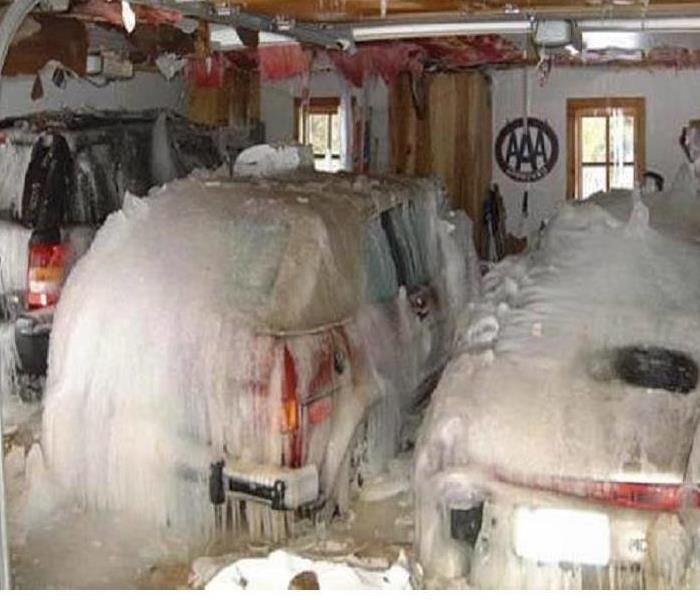How to Avoid Frozen Pipes in Your Hopewell Junction Home
12/16/2020 (Permalink)
 Frozen pipes can cause a tremendous amount of damage. Avoid this problem with our useful tips and tricks!
Frozen pipes can cause a tremendous amount of damage. Avoid this problem with our useful tips and tricks!
The famous Hudson Valley winter temperatures can cause even interior pipes to freeze. While we grin and bear it every year, unprotected or uninsulated pipes just can’t. Burst pipes are one of the most common causes of property damage during frigid weather and can cause thousands in water damage.
Unheated interior spaces like some basements, attics, and garages are the first to cause problems. Vacant homes, 2nd homes and abandoned properties suffer through this issue the most, but even occupied, heated homes with pipes running through cabinets or exterior walls can freeze. There are a few tricks you can do to keep your house dry and your water running.
“Pipe insulation can cost as little as 50 cents per linear foot at your local hardware store,” says Susan Millerick, IBHS spokeswoman.“ So, for not much more than the cost of the aspirin you’d need, you can avoid the headaches of cleanup, loss of precious keepsakes, and the cost of your insurance deductible.” Use the pipe insulation liberally to protect any vulnerable pipes. Certainly avoid any heat sources or flames but otherwise it’s ok to be generous with pipe insulation.
Our tips and tricks to beat the frozen pipe issue:
Once temperatures start dropping outside, you should take precautions inside to keep your pipes warm and water running. Temperatures below 20F are the warning spot so keep the area above at least at 55 degrees that to thwart potential issues.
Keep the thermostat set to the same temperature during day and night. The heart of winter is not the best time to lower the heat to adjust for expenses as a water damage repair can be thousands of dollars to repair and cause plenty of secondary issues like structural problems and possible mold growth.
Open kitchen and bathroom cabinet doors to let warmer air to circulate around the plumbing. (If you have small children, be sure to remove any harmful cleaners and household chemicals.)
Let the cold-water drip from a faucet served by exposed pipes (think basement utility sinks or laundry sinks). Running water through the pipe, even at a trickle, can help prevent pipes from freezing. Similar to a mountain stream that doesn’t freeze over completely as the water is always moving.
Keep garage doors closed, especially if there are water supply lines in the garage. Consider some insulation around the windows and doors to help. Small tricks like these can have a positive affect on the whole house.
If you plan to be away during cold weather, leave the heat on in your home, set to a temperature no lower than 55° F. The last thing you want is to come home to an igloo. Consider a professional to winterize the home or a property management company to keep an eye on things and take care of any issues that arise.
For the long term, add insulation to attics, basements, and crawl spaces. Insulation will maintain higher temperatures in those areas. And to prevent drafts, seal cracks and openings around windows, doors, and at sill plates, where the house rests on its foundation.
Sometimes, things just happen no matter how much you might prepare for it. SERVPRO of Western Dutchess County is here 24/7 for when water damage happens. Call us at 845-831-3600 and we'll make it "Like it never even happened."





 24/7 Emergency Service
24/7 Emergency Service